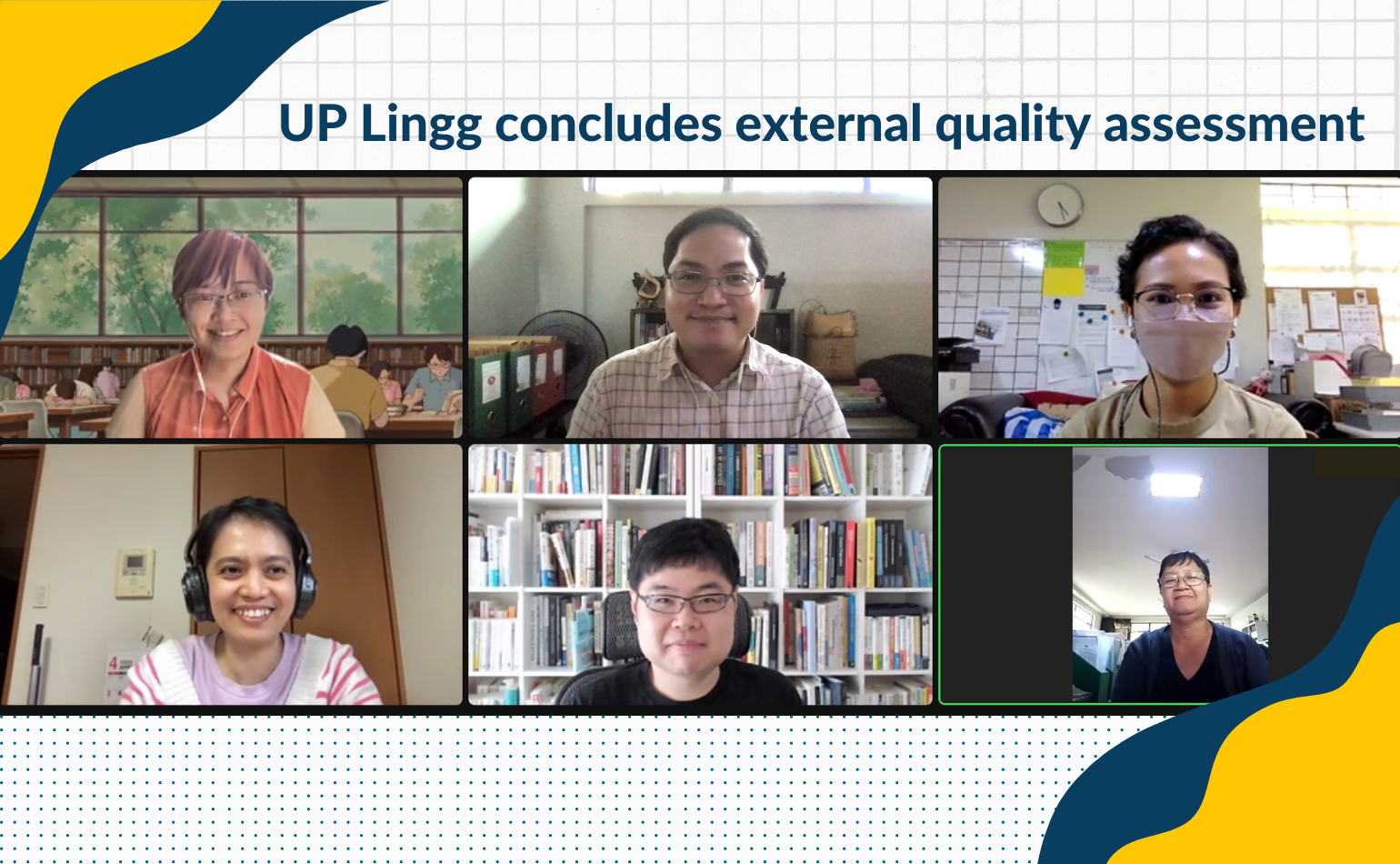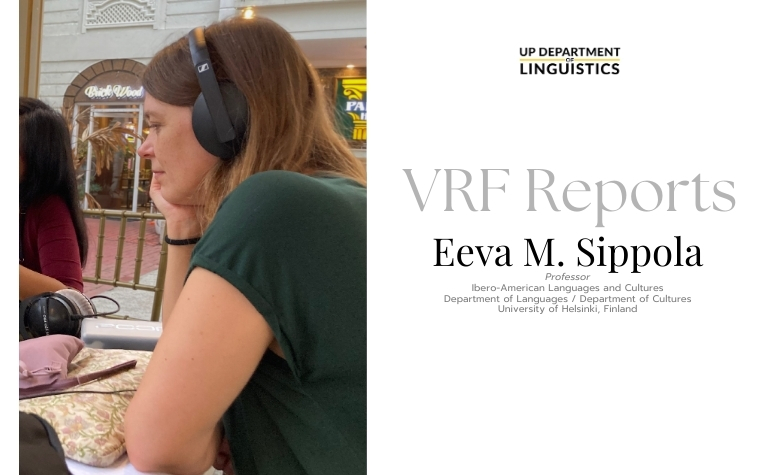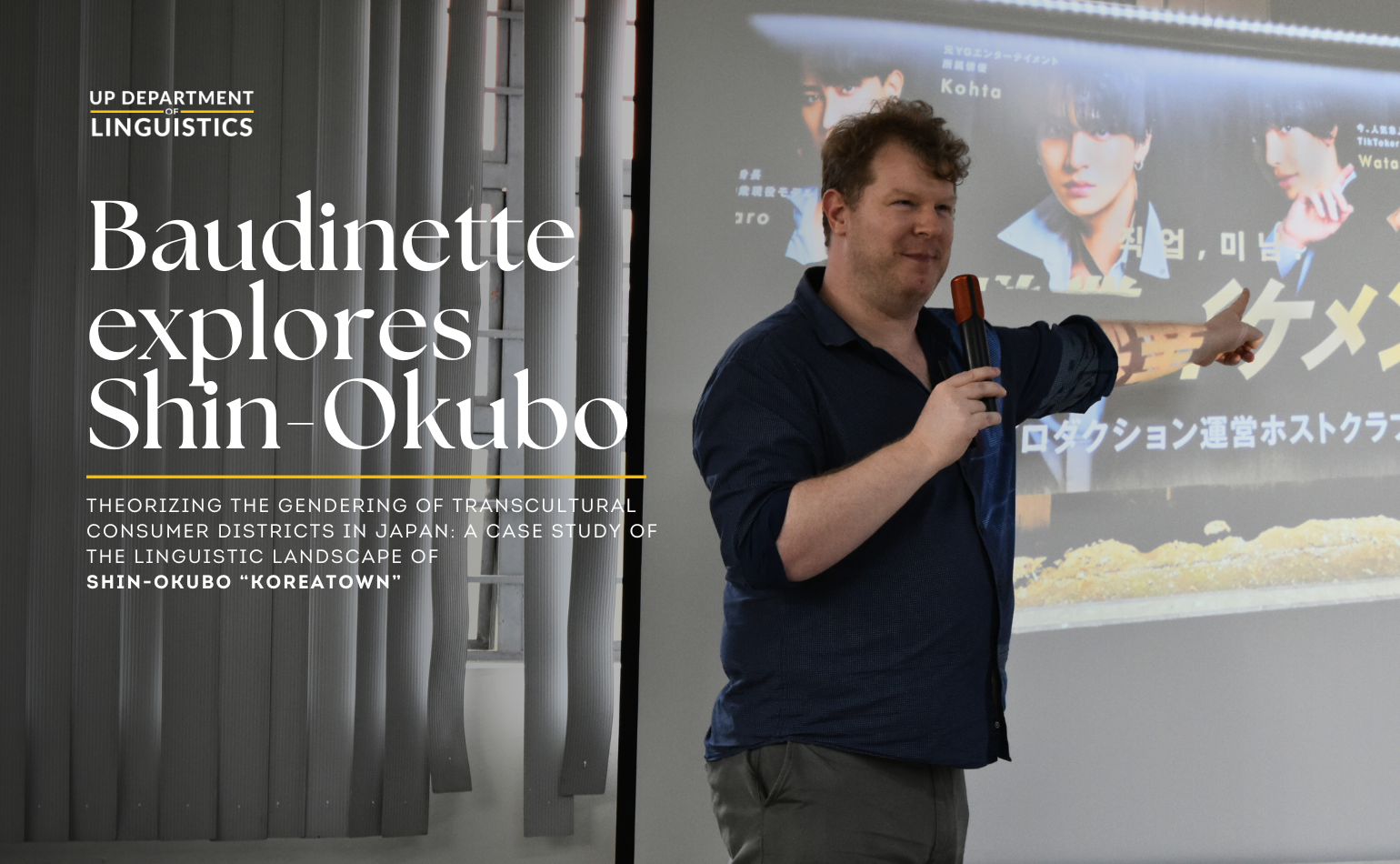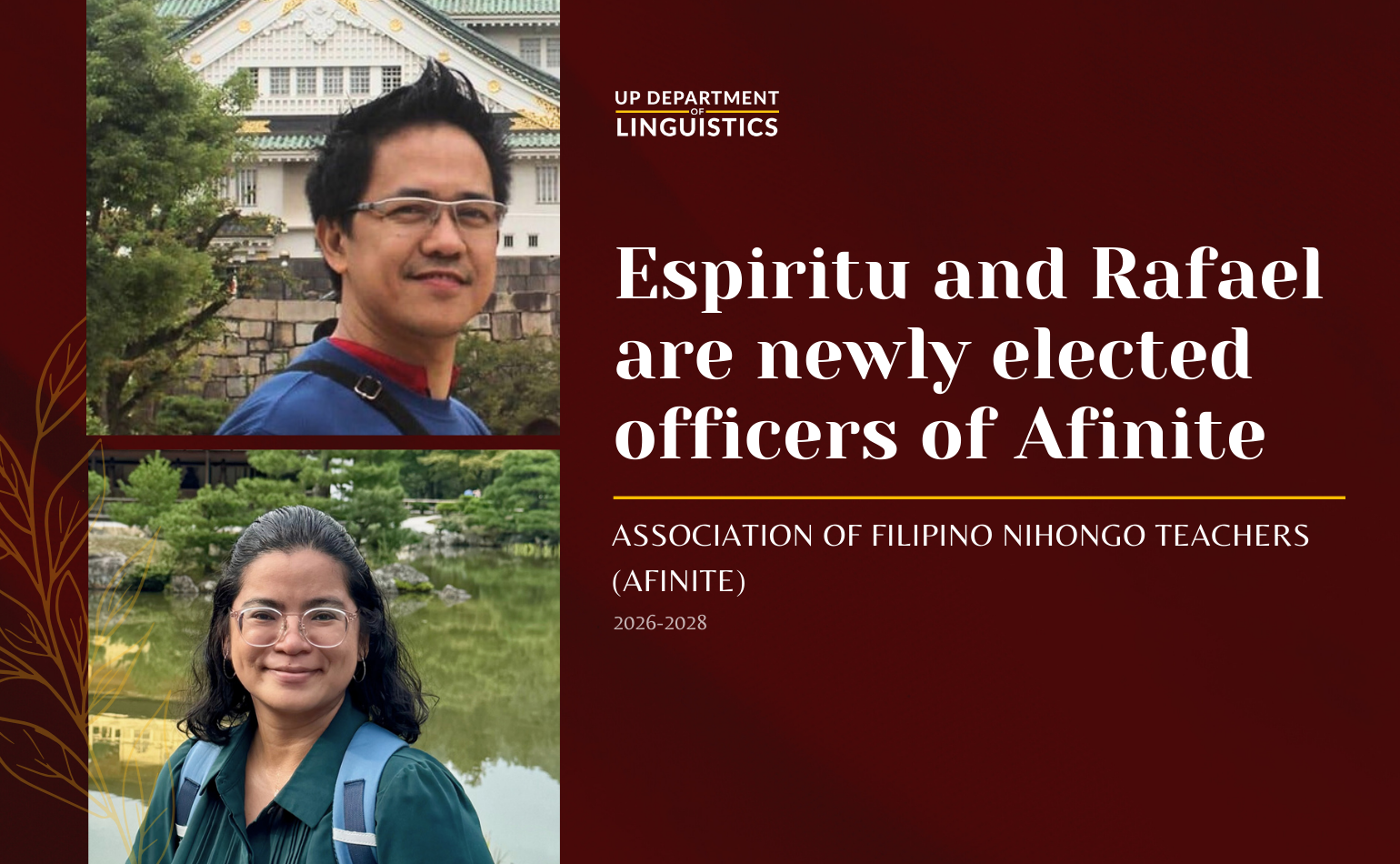
The Department recently underwent an external quality assessment (EQA) of its undergraduate degree program, unit structure, and other services. The activity was done with the support of the Academic Program Improvement Fund from the UP Diliman Quality Assurance (QA) Office and was spearheaded by Assistant Professor Jem Javier as the project leader, Assistant Professor Elsie Marie Or as the Department’s QA Officer, as well as Administrative Officer Victoria Vidal & University Research Associate Jurekah Chene Abrigo as project members. Dr. Naonori Nagaya of The University of Tokyo (U Tokyo) and Prof. Florinda Amparo Palma Gil of Tokyo University of Foreign Studies (TUFS) served as external assessors and EQA activities were conducted from February 2022 to January 2023.
The Department invited Dr. Nagaya and Prof. Palma Gil to serve as External Assessors because their respective institutional affiliations provide similar programs and offer similar courses as the Department’s. Dr. Nagaya is an associate professor and the current Chairperson of the U Tokyo Department of Linguistics, Division of Language and Culture. Meanwhile, Prof. Palma Gil is Senior Language Lecturer at the TUFS World Language and Society Education Centre.
Because of limitations brought about by the COVID-19 pandemic, most of the EQA-related activities were conducted remotely. In addition to conducting a desk review of the Department’s comprehensive self-assessment report, the external assessors and the project team held regular online meetings to discuss key issues, strengths, and weaknesses of the Department in the following areas: (a) expected learning outcomes of our BA in Linguistics program; (b) program specification, structure, and content; (c) teaching and learning approach; (d) student assessment; (e) academic and support staff quality; (f) facilities and infrastructure; (g) quality enhancement; and (h) output. Based on the discussions and desk reviews, the external assessors were asked to provide recommendations to close the gaps identified in the qualitative assessment. The Department, on the other hand, is tasked to create strategic action plans to implement those recommendations.
Several areas of improvement were identified in the assessment (e.g., the diversity of research methods being taught, the range and volume of research and publication output, the quality of and access to some of its facilities, and the bottom-heavy profile of the Department’s full-time faculty). Nonetheless, the external assessors were impressed with the performance of the Department, particularly in providing quality education in linguistics and Asian languages. In his assessment, Dr. Nagaya writes that, “Overall, the UP Linguistics Department offers the strongest language and linguistics program in the Philippines and is considered one of the best linguistics departments in Asia. It has a well-organized and structured curriculum with good articulation between year levels and courses, with a clear picture of expected learning outcomes.”
They also commend the Department for obtaining consistently high student evaluation scores and the effort that the unit exerts to providing support for its students, staff, and the wider public. Prof. Palma Gil writes, “Despite the busy schedule of the faculty members due to teaching, research and administrative loads, the department is able to maintain an organized system of support for faculty, students and staff that functions like a “family”. As a result, student evaluation of the programs of the department are high and at the same time show high student satisfaction.”
We are extremely grateful to Dr. Nagaya and Prof. Palma Gil for giving us their time and for the recommendations that they gave to further improve the Department, including its functions and its offerings. The Department will continue to work towards improving its programs, services, and the quality and reach of the scholarship that we do in order to fulfill its mandate.
Published by UP Department of Linguistics



